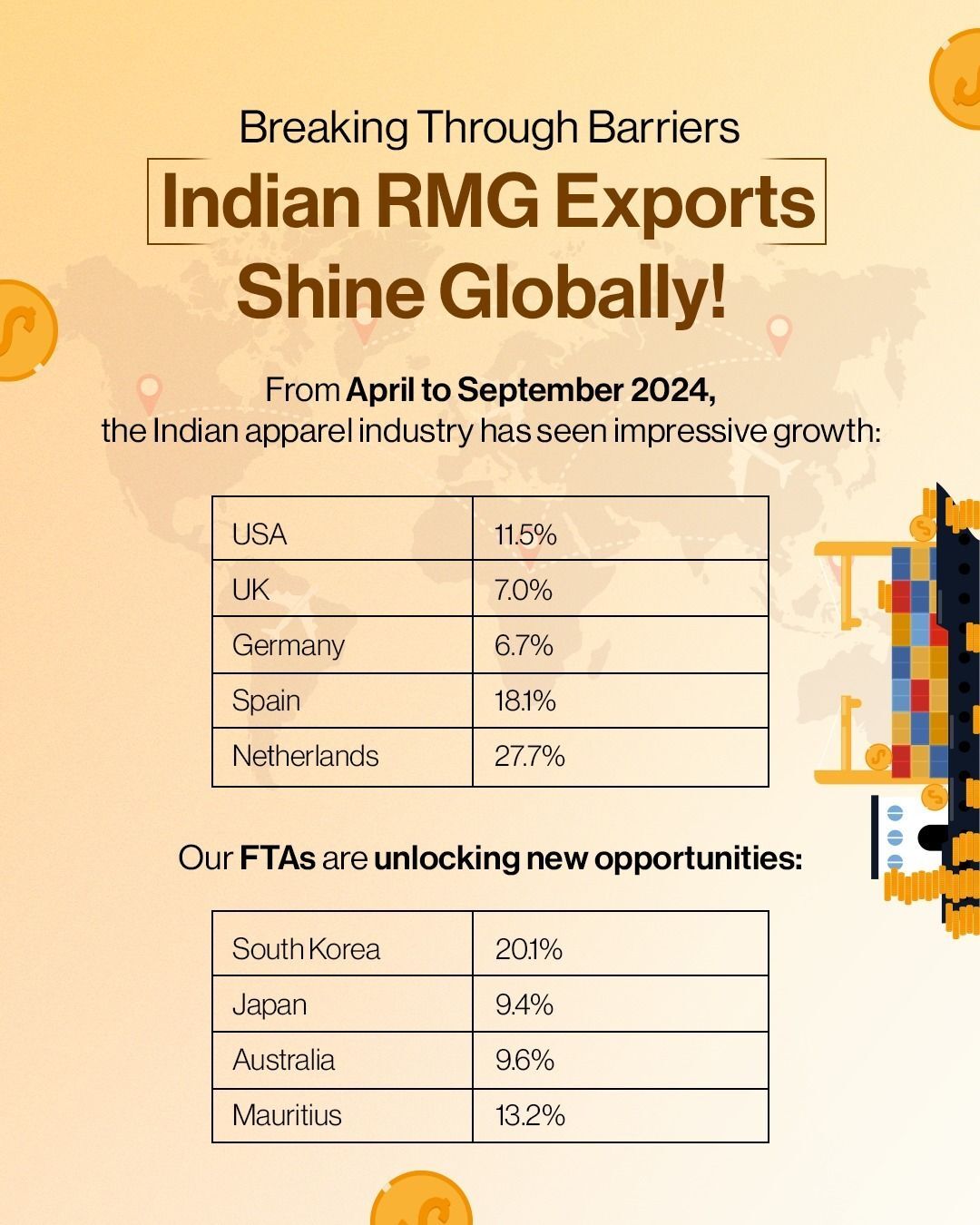"The multi-million Indian knitwear industry, which faced the brunt of demonetisation and GST, is in doldrums today as many garment manufacturers are shifting their units from Tirupur to countries like Ethiopia and Sri Lanka that provide free access to major markets like the US and EU. The country offers excellent infrastructure to young entrepreneurs. It also has geographical advantage over others as the flying time from Coimbatore to Colombo is just 70 minutes. In the past six months alone, four well-known garment manufacturers, who excelled in the sector for decades, opened factories in Ethiopia."
 The multi-million Indian knitwear industry, which faced the brunt of demonetisation and GST, is in doldrums today as many garment manufacturers are shifting their units from Tirupur to countries like Ethiopia and Sri Lanka that provide free access to major markets like the US and EU. The country offers excellent infrastructure to young entrepreneurs. It also has geographical advantage over others as the flying time from Coimbatore to Colombo is just 70 minutes. In the past six months alone, four well-known garment manufacturers, who excelled in the sector for decades, opened factories in Ethiopia.
The multi-million Indian knitwear industry, which faced the brunt of demonetisation and GST, is in doldrums today as many garment manufacturers are shifting their units from Tirupur to countries like Ethiopia and Sri Lanka that provide free access to major markets like the US and EU. The country offers excellent infrastructure to young entrepreneurs. It also has geographical advantage over others as the flying time from Coimbatore to Colombo is just 70 minutes. In the past six months alone, four well-known garment manufacturers, who excelled in the sector for decades, opened factories in Ethiopia.
Cheap labor, market access lures manufacturers abroad
Some major reasons why many manufacturers are opting to open units in foreign countries are: cheap labor, free market access to the EU and US, readily available infrastructure and absence of red-tape. The Indian industry, which was growing at over 10 per cent every year, has been reporting a 7 per cent dip since 2011, resulting in loss of a whopping Rs 2,000 crore ( US$ 0.27billion) . Exports, valued at Rs 26,000 crore ( US$ 3.54 billion) in 2016-2017, declined to Rs 24,000 crore ( US$ 3.27 billion) in 2017-2018 and domestic sales stood at around Rs 18,000 crore( US$ 2.45 billion) .
India does not offer free market access to EU and the US, which puts manufacturers in Tirupur at a disadvantageous position since entry tax is levied once goods reach the destination countries. Bangladesh and Sri Lanka, on the other hand, offer free access to the EU; Ethiopia also offers free access to both the EU and the US – thus attracting most of the buyers.
goods reach the destination countries. Bangladesh and Sri Lanka, on the other hand, offer free access to the EU; Ethiopia also offers free access to both the EU and the US – thus attracting most of the buyers.
The labor cost in Tirupur is $150 to $200 (between Rs 11,000 to Rs 15,000) a week, while it is just $75 (Rs 6,000) in Ethiopia. Secondly, in India, separate labor is hired for stitching, packing, etc. Foreign countries, however, train their labor to multi-task, saving much more on the cost involved.
Plug and play model add to the attraction
The Ethiopian government keeps its infrastructure ready for garment manufacturers – all they have to do is to go with their machines, hire employees, train them and their factory is up and running. This plug and play model attracts manufacturers as they don’t have to go through the hassle of looking for land, constructing a building and get permissions. Everything is done by the government; all they have to do is to start our operations
R Rajkumar, Managing Director, Best Corporation, which launched operations in Hawassa, Ethiopia a couple of months ago, operates 500 machines in the country in two shifts. The company plans to increase capacity to 2,000 machines gradually. Santex Inc, which was also lured by the free market access that Sri Lanka offers to the EU, has opened a factory near Kandy in the country.












